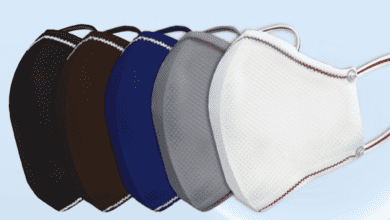When it comes to protein powder, how much is too much?
comes to protein powder
Deprecated: preg_split(): Passing null to parameter #3 ($limit) of type int is deprecated in /home/dailwtkh/public_html/wp-content/themes/jannah/framework/functions/post-functions.php on line 863

Protein is a daily necessity for the body, although different people require protein for different reasons. Some people need more protein to increase muscle mass, while others just need protein to meet their nutritional needs. There are several manufacturers that sell various forms of protein powder, which may be rather perplexing. Each form of protein powder has distinct components, composition, and effects on you.
You may be unsure about which protein powder is ideal for you and end up selecting the incorrect one! Let’s put an end to your confusion and learn how it helps and can make the most of your health journey. Read on to know more about protein powder!
What is protein powder?
A common nutrient supplement is protein powder. Protein is an important macronutrient that supports the building of muscle, tissue healing, and hormone production. The use of protein powder can also help people to lose weight and tone their muscles. Many forms of protein powder, including milk and plant-based powders, are present.
Different types of protein powder
Protein powder comes in a variety of forms. Some of them are
- Whey: Whey is a water-soluble milk protein that is popular among athletes. It is a complete protein, which means that it contains all of the amino acids that the human body needs from food. The body easily and quickly absorbs whey protein.
- Casein: Casein is a protein that is high in glutamine, an amino acid that may fasten muscle repair after exercise. Casein is incompatible with vegans and people who are allergic to milk because it is produced from dairy. Because this protein is more slowly digested by the body, taking it at night may be better.
- Soy protein: For those who do not consume dairy, soy protein is a good substitute for whey or casein. It also includes all of the necessary amino acids.
- Pea protein: Pea protein is a high-quality alternative to soy and dairy-based proteins that is utilised in many plant-based protein powders. The amino acid arginine is abundant in pea protein.
- Hemp: Hemp seeds provide full proteins as well as necessary fatty acids. As a consequence, hemp is an excellent choice for vegans or those who are sensitive to dairy or soy.
How much protein do we need?
Another important aspect is how much protein you need to decide whether you may benefit from a dietary addition. The value of the RDA, known as the Recommended Dietary Allowance, is 0.8 grams per kg, considered to be appropriate for most healthy adults. This equates to around 55 grams of protein for someone weighing 200 pounds who takes approximately 70 grams of protein. Some athletes who endure intensive training may improve their results by ingesting more than two times the RDA.
When do we need protein?
- A young person requires additional protein to fuel his training since his body continues to expand and utilises more protein.
- When you train out, you need more protein than you typically would and you are attempting to create muscle.
- When you work out a few times a week typically over a half hour, but you decide how to prepare for a half marathon, more protein is needed in your body.
- Sport injured athletes often require additional protein to recover.
- People who follow vegan or vegetarian lifestyles exclude from their diet a variety of typical protein sources, such as meat, poultry and fish, milk and eggs at times as well.
Protein powder supplements are good for you?
For many years, protein supplements were only used by bodybuilders and those who engaged in strenuous activity. Protein shakes were originally a sports supplement intended to bulk up muscles, but now many health-conscious people include them into their diet. Even if you don’t go to the gym on a daily basis, extra protein in the form of powder, according to health care professionals, has some established benefits. A sizable portion of the general population consumes protein powder for meal replacement, weight loss, and alleged health benefits.
Protein supplements are also favored over conventional protein sources since they need less time to prepare and are easier to get and utilize. However, these supplements have varied benefits and drawbacks that the general population frequently overlooks.
Benefits of protein powder | Helps in building muscle
Protein powder is also necessary for muscle development. It aids in the faster and more efficient development of muscle tissue and muscle mass. These vitamins will assist them in bulking up following strength exercise. According to research, protein supplements increase muscle size and strength in healthy individuals who engage in resistance exercise training, such as weight lifting.
Provides recovery after workout
Protein powder, in addition to promoting muscular development, also aids in the healing of injured muscles and tissues. Athletes utilise it to speed up recovery from muscular pain after workout. Taking protein supplements after exercise has been shown in studies to improve recovery by decreasing muscle damage and increasing muscular function and protein synthesis.
Helps in weight loss
The protein-rich powder is more filling than eating fat or carbs. It aids in keeping fullness for a longer period of time. Feeling full leads to lower portion sizes and less hogging on junk food, which aids in weight management.
According to a study published in the Journal of the American College of Nutrition, supplementing with protein powder may lower body weight and total fat mass in overweight and obese adults. It also lowers blood pressure, cholesterol levels, and the risk of heart disease.
Maintain healthy skin
It has been shown that persons who are protein deficient typically have skin that ages and sags faster than usual. Muscle tone loss and sagging skin on the legs and arms are also observed. A high-protein diet, such as one including protein powder, can help to prevent and reverse the symptoms of ageing. It can also aid in the healing of damage caused by illnesses or a low protein diet.
Encourages nose and hair growth
Protein powder also helps to keep your hair and nails healthy. Splitting, breaking, tearing or breaking nails typically are symptoms of a protein deficit. A protein supplement can assist promote healthy hair development which is susceptible to harm and also benefits people who find that their clots do not grow rapidly.
How to use protein powder?
Mix with water, milk, or any other beverage of your choice, the suggested doses of the protein powder supplement. Before drinking it, shake it correctly. For best effects, take your protein powder at least three times a day. The suggested times to take the supplement are the morning after an exercise and before going to bed.
How to get most out of protein powder?
People should determine their daily dietary needs before utilising protein powder. Those who do not receive enough protein from their diet should start using protein powders as a supplement. The following are some things to bear in mind when using protein powder:
- Protein powder should be consumed in the morning since it provides a sensation of fullness and prevents snacking. Another advantage of consuming protein powder in the morning is that it increases strength and muscle mass while preventing the body from entering a catabolic condition. Excessive training combined with a lack of appropriate diet, particularly protein, results in a catabolic condition.
- Protein consumption following an exercise is frequently recommended for muscle development and/or recuperation.
- Eating a carbohydrate-rich meal or drinking a protein shake shortly after exercising helps to optimize muscle mass increase by boosting anabolic hormone production (growth hormones), decreasing protein breakdown, and providing amino acids for protein synthesis.
- Protein consumption before exercise results in more effective exercises. Proteins enriched in branched amino acids assist to keep glycogen reserves high, resulting in greater energy. A pre-workout snack of a protein shake and complex carbohydrate can provide the energy needed to push yourself further during exercises.
- When taking protein powder, make sure you drink enough water to avoid dehydration. Always read product labels to ensure you know what you’re eating.
- Always search for protein powder that contains soy, whey, casein, or other combinations, but avoid unnecessary additives. Whey protein is the best supplement for people looking to gain muscle, improve their physiques, and improve their health.
- Look for high-quality nutrition items or well-established brands, and use them cautiously.
Side effect
Overconsumption of protein supplements frequently harms more than it gives benefits. Some of them are as follows:
- Cause acne
- Upset digestive system
- Unhealthy weight gain
- Increase insulin levels
- Low blood pressure
- Disrupt hormones
- Cause liver damage
Conclusion
Proteins should be considered a foundation component in any dietary regimen, regardless of your health goals. It is no secret that physically active people who participate in sports or who lift weights will benefit from eating adequate protein.
Those who do not bodybuild, on the other hand, can benefit from protein supplements as well. The only way to find out if protein supplements are beneficial is to utilise them. People should choose a high-quality protein powder and check with a doctor or a dietitian before using it to supplement the diet.





